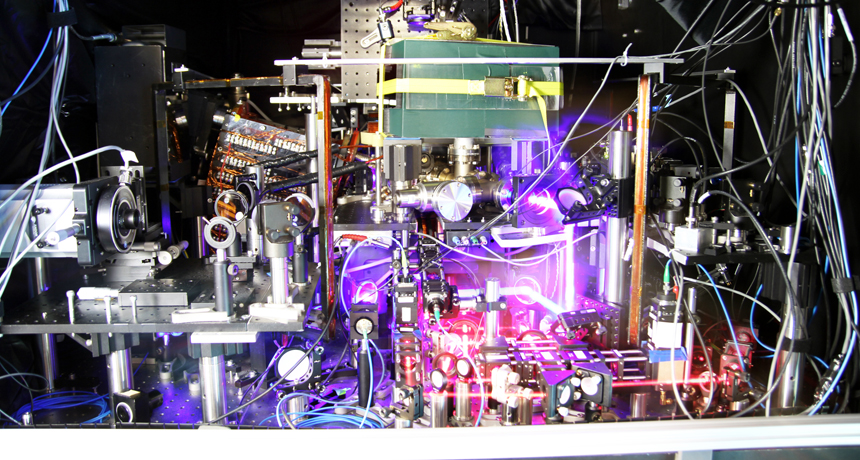Atomic clock sets world records for precision, stability

The experimental atomic clock based on strontium atoms held in a lattice of laser light is now the world's most precise and stable atomic clock.
Ye group and Baxley/JILA

The experimental atomic clock based on strontium atoms held in a lattice of laser light is now the world's most precise and stable atomic clock.
Ye group and Baxley/JILA